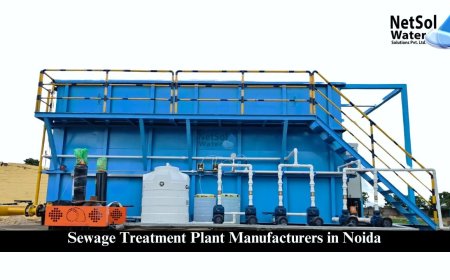Why Transport Businesses Are Investing in Custom Software
Discover why transport businesses are turning to custom software to optimize operations, improve fleet management, enhance customer experience, and gain a competitive edge in the logistics industry.

The transportation and logistics industry is at a pivotal point. Increasing demand for faster deliveries, real-time tracking, rising fuel costs, and evolving customer expectations are putting pressure on transport businesses to modernize. For many, the answer lies in custom software solutionspowerful tools tailored to streamline operations, improve visibility, and drive profitability.
This article explores why transport businesses are increasingly investing in custom software and how such investments deliver a competitive edge in a demanding market.
1. Rising Operational Complexity
Transport businesses are no longer managing simple point-to-point deliveries. With multiple modes of transport, variable customer demands, and compliance regulations, the logistics chain has become more complex than ever.
-
Custom software centralizes operations, making it easier to handle freight scheduling, vehicle maintenance, routing, and driver management.
-
It automates processes that would otherwise be time-consuming and error-prone.
-
This centralized approach saves time, reduces operational costs, and improves decision-making.
2. Demand for Real-Time Visibility
Customers and partners now expect to track shipments in real-timefrom warehouse to doorstep. Generic software often lacks the depth to offer granular visibility.
-
Custom systems integrate GPS tracking, sensor data, and mobile updates into a unified dashboard.
-
Fleet managers get real-time alerts on delays, traffic disruptions, or unscheduled stops.
-
This transparency strengthens trust, improves customer satisfaction, and reduces service disruptions.
3. Route Optimization and Fuel Efficiency
Rising fuel prices directly affect profit margins. Efficient route planning can save thousands of dollars per vehicle annually.
-
Custom route optimization tools use real-time traffic data, historical trends, and delivery schedules to determine the most efficient paths.
-
Algorithms can adjust dynamically based on road conditions or delivery urgency.
-
These systems help reduce fuel consumption, wear and tear on vehicles, and driver fatigue.
4. Integration with Existing Systems
Many transport businesses already use software for accounting, HR, or warehouse management. However, off-the-shelf transport solutions often lack compatibility.
-
Custom software is designed to integrate seamlessly with existing ERP, CRM, or accounting platforms.
-
Data flows automatically between systems, reducing duplicate entry and errors.
-
This leads to better reporting, forecasting, and coordination across departments.
5. Fleet and Asset Management
For large transportation companies, tracking the performance and maintenance needs of hundreds of vehicles is a logistical challenge.
-
Custom software can monitor vehicle health, service schedules, fuel usage, and driver performance in one place.
-
Predictive maintenance features alert managers before breakdowns occur, minimizing downtime.
-
Asset utilization improves as businesses identify underused vehicles or inefficient routes.
6. Improved Regulatory Compliance
Transport businesses must comply with a range of regulationsemissions standards, labor laws, safety protocols, and more.
-
A custom platform ensures that compliance-related workflows are built into the daily operations.
-
Automated alerts and reports keep documentation up to date and audit-ready.
-
This reduces legal risks, enhances safety, and improves reputation with regulators and clients.
7. Data-Driven Decision Making
Standard logistics platforms may lack the flexibility to extract detailed insights tailored to a businesss unique goals.
-
Custom software allows transport businesses to define their own KPIs and track them in real time.
-
Dashboards can display metrics like on-time delivery rate, fuel usage per route, or vehicle downtime.
-
Businesses make faster, smarter decisions backed by accurate and relevant data.
8. Enhanced Customer Experience
In B2B and B2C logistics, the end-user experience can be a key differentiator.
-
A custom customer portal allows clients to track shipments, submit support tickets, or request quotes in real time.
-
Features like automated SMS/email updates, digital signatures, and proof-of-delivery images boost transparency.
-
These capabilities improve satisfaction and can become a powerful selling point for acquiring new contracts.
9. Competitive Differentiation
In a market filled with standard offerings, personalized digital tools set a business apart.
-
Custom-built platforms reflect your brand identity and specific business model.
-
They allow for innovation, such as implementing AI-powered demand forecasting or blockchain-based shipment validation.
-
This differentiation attracts partners, investors, and new clients.
10. Long-Term Cost Savings
Though the upfront investment may be higher, custom software pays off over time.
-
Businesses avoid recurring licensing fees and costly workarounds for features not available in generic software.
-
Maintenance and upgrades are tailored to your needs, not tied to a third-party providers release schedule.
-
Ownership of the code base also opens opportunities for future monetization or resale.
11. Scalability and Future Readiness
Generic software might not scale well as your business grows or diversifies.
-
Custom solutions are built with scalability in mind, ready to support additional vehicles, routes, or regions.
-
They can incorporate new technologiesIoT devices, electric vehicle monitoring, or green compliance featuresas the market evolves.
-
This ensures your infrastructure grows with your business, not against it.
12. Enhanced Security Controls
Cybersecurity threats in the transportation sector have been increasing, particularly with the rise in digital transactions and connected devices.
-
Custom software can be built with enterprise-grade security protocols such as end-to-end encryption and role-based access controls.
-
Businesses can monitor suspicious activities with real-time threat detection.
-
This reduces the risk of data breaches and financial losses.
Collaborating with the Right Technology Partner
Investing in transportation software requires technical expertise, industry insight, and long-term support. Thats where working with a seasoned Logistics Software Development Company makes a significant difference.
Such a partner ensures that your digital solution is secure, scalable, and perfectly aligned with your operational workflows and long-term goals. They offer domain-specific knowledge that accelerates development timelines and reduces implementation risks.
Conclusion
For transport businesses, investing in custom software is no longer a luxuryits a necessity for staying competitive, efficient, and future-ready. From route optimization to fleet management and compliance automation, bespoke solutions offer targeted value that generic platforms cant match. As transportation continues to evolve through digital transformation, the companies that invest early and strategically in custom solutions will be the ones that lead the way forward.
































